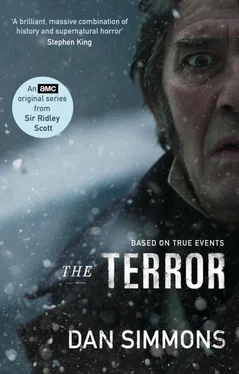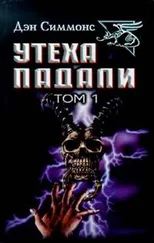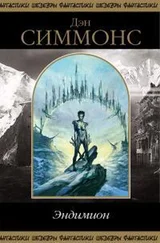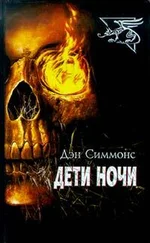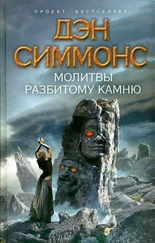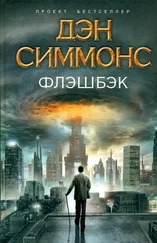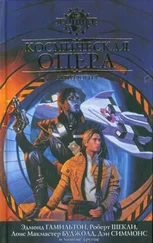This elusive quality it is, which causes the thought of whiteness, when divorced from more kindly associations, and coupled with any object terrible in itself, to heighten that terror to the furthest bounds. Witness the white bear of the poles, and the white shark of the tropics; what but their smooth, flaky whiteness makes them the transcendent horrors they are? That ghastly whiteness it is which imparts such an abhorrent mildness, even more loathesome than terrific, to the dumb gloating of their aspect. So that not the fierce-fanged tiger in his heraldic coat can so stagger courage as the white-shrouded bear or shark.
—Herman Melville
Moby Dick (1851)
This book is dedicated, with love and many thanks for the indelible Arctic memories, to Kenneth Tobey, Margaret Sheridan, Robert Cornthwaite, Douglas Spencer, Dewey Martin, William Self, George Fenneman, Dmitri Tiomkin, Charles Lederer, Christian Nyby, Howard Hawkes, and James Arness.
Lat. 70°–05′ N., Long. 98°–23′ W.
October, 1847
Captain Crozier comes up on deck to find his ship under attack by celestial ghosts. Above him — above Terror — shimmering folds of light lunge but then quickly withdraw like the colourful arms of aggressive but ultimately uncertain spectres. Ectoplasmic skeletal fingers extend toward the ship, open, prepare to grasp, and pull back.
The temperature is –50 degrees Fahrenheit and dropping fast. Because of the fog that came through earlier, during the single hour of weak twilight now passing for their day, the foreshortened masts — the three topmasts, topgallants, upper rigging, and highest spars have been removed and stored to cut down on the danger of falling ice and to reduce the chances of the ship capsizing because of the weight of ice on them — stand now like rudely pruned and topless trees reflecting the aurora that dances from one dimly seen horizon to the other. As Crozier watches, the jagged ice fields around the ship turn blue, then bleed violet, then glow as green as the hills of his childhood in northern Ireland. Almost a mile off the starboard bow, the gigantic floating ice mountain that hides Terror ’s sister ship, Erebus , from view seems for a brief, false moment to radiate colour from within, glowing from its own cold, internal fires.
Pulling up his collar and tilting his head back, out of forty years’ habit of checking the status of masts and rigging, Crozier notices that the stars overhead burn cold and steady but those near the horizon not only flicker but shift when stared at, moving in short spurts to the left, then to the right, then jiggling up and down. Crozier has seen this before — in the far south with Ross as well as in these waters on earlier expeditions. A scientist on that south polar trip, a man who spent the first winter in the ice there grinding and polishing lenses for his own telescope, had told Crozier that the perturbation of the stars was probably due to rapidly shifting refraction in the cold air lying heavy but uneasy over the ice-covered seas and unseen frozen landmasses. In other words, over new continents never before seen by the eyes of man. Or at least, Crozier thinks, in this northern arctic, by the eyes of white men.
Crozier and his friend and then commander James Ross had found just such a previously undiscovered continent — Antarctica — less than five years earlier. They named the sea, inlets, and landmass after Ross. They named mountains after their sponsors and friends. They named the two volcanoes they could see on the horizon after their two ships — these same two ships — calling the smoking mountains Erebus and Terror. Crozier was surprised they hadn’t named some major piece of geography after the ship’s cat.
They named nothing after him. There is, on this October winter’s dark-day evening in 1847, no arctic or antarctic continent, island, bay, inlet, range of mountains, ice shelf, volcano, or fucking floeberg which bears the name of Francis Rawdon Moira Crozier.
Crozier doesn’t give the slightest God-damn. Even as he thinks this, he realizes that he’s a little bit drunk. Well, he thinks, automatically adjusting his balance to the icy deck now canted twelve degrees to starboard and down eight degrees by the bow, I’ve been drunk more often than not now for three years, haven’t I? Drunk ever since Sophia. But I’m still a better sailor and captain drunk than that poor, unlucky bastard Franklin ever was sober. Or his rosy-cheeked lisping pet poodle Fitzjames, for that matter .
Crozier shakes his head and walks down the icy deck forward to the bow and toward the only man on watch he can make out in the flickering light from the aurora.
It is short, rat-faced Cornelius Hickey, caulker’s mate. The men look all the same out here on watch in the dark, since they’re all issued the same cold-weather slops: layers of flannel and wool covered with a heavy waterproof greatcoat, bulbous mittens protruding from voluminous sleeves, their Welsh wigs — heavy watch caps with floppy ears — pulled tight, often with long comforters — scarves — wrapped around their heads until only the tips of their frostbitten noses are visible. But each man layers or wears his cold-weather slops slightly differently — adding a comforter from home, perhaps, or an extra Welsh wig tugged down over the first, or perhaps colorful gloves lovingly knit by a mother or wife or sweetheart peeking out from under the Royal Navy outer mittens — and Crozier has learned to tell all fifty-nine of his surviving officers and men apart, even at a distance outside and in the dark.
Hickey is staring fixedly out beyond the icicle-sheathed bowsprit, the foremost ten feet of which are now embedded in a ridge of sea ice, as HMS Terror ’s stern has been forced up by the ice pressure and the bow is pushed lower. Hickey is so lost in thought or cold that the caulker’s mate doesn’t notice his captain’s approach until Crozier joins him at a railing that has become an altar of ice and snow. The lookout’s shotgun is propped against that altar. No man wants to touch metal out here in the cold, not even through mittens.
Hickey starts slightly as Crozier leans close to him at the railing. Terror ’s captain can’t see the twenty-six-year-old’s face, but a puff of his breath — instantly turning into a cloud of ice crystals reflecting the aurora — appears beyond the thick circle of the smaller man’s multiple comforters and Welsh wig.
Men traditionally don’t salute during the winter in the ice, not even the casual knuckling of the forehead an officer receives at sea, but the thickclad Hickey does that odd little shuffle and shrug and head dip by which the men acknowledge their captain’s presence while outside. Because of the cold, the watches have been cut down from four hours to two — God knows, thinks Crozier, we have enough men for that on this overcrowded ship, even with the lookouts doubled — and he can tell just by Hickey’s slow movements that he’s half-frozen. As many times as he’s told the lookouts that they have to keep moving on deck — walk, run in place, jump up and down if they have to, all the while keeping their attention on the ice — they still tend to stand immobile for the majority of their watch, just as if they were in the South Seas wearing their tropical cotton and watching for mermaids.
Читать дальше
